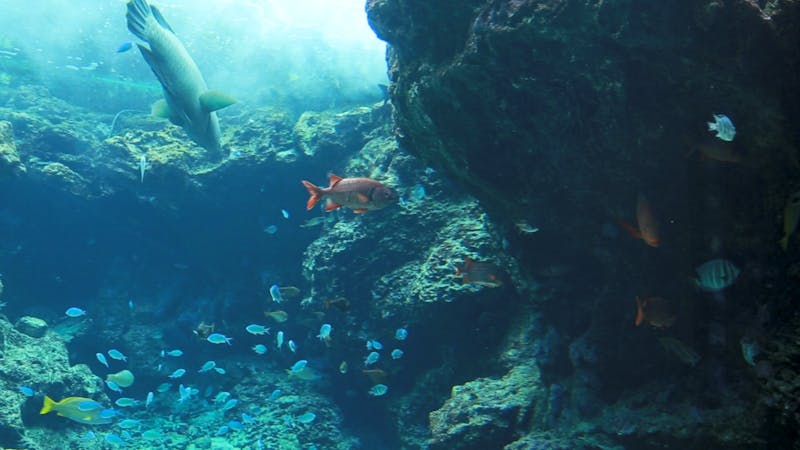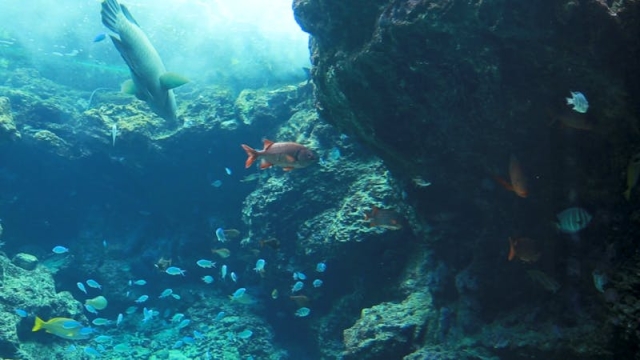
The future of our oceans lies in the innovative advancements of aquaculture technology. As the demand for sustainable seafood grows, so does the need for efficient and eco-friendly practices in fish farming. Aquaculture not only offers a promising solution to overfishing, but it also presents exciting opportunities for economic development and environmental stewardship. With cutting-edge technologies reshaping the industry, we are on the brink of a new era where fish farming can thrive without compromising the vitality of our marine ecosystems.
At the forefront of this transformation is The Rokter, an authoritative hub dedicated to aquaculture technology and sustainability insights. This platform provides in-depth blog posts, valuable industry resources, and a vibrant forum for aquaculture professionals. By fostering collaboration and knowledge sharing, The Rokter empowers individuals and organizations to adopt and implement the latest innovations in the field. Join us as we explore the incredible advancements in aquaculture technology that are revolutionizing the way we nurture and protect our oceans.
Innovative Aquaculture Technologies
Aquaculture has seen a remarkable transformation with the advent of innovative technologies that enhance productivity and sustainability. One such advancement is the integration of automated systems for monitoring water quality and environmental conditions. Sensors and IoT devices provide real-time data on parameters such as temperature, salinity, and oxygen levels, allowing farmers to make informed decisions. This technology minimizes the risks of crop loss and optimizes growth conditions, contributing to a more efficient aquaculture process.
Another significant development is the use of artificial intelligence and machine learning to improve fish farming practices. These technologies enable predictive analytics, helping farmers to forecast fish growth rates and health issues before they become critical. Furthermore, AI-driven feeding systems can optimize feed delivery based on individual fish behaviors, reducing waste and promoting healthier ecosystems. This shift towards data-driven management empowers aquaculture professionals to refine their operations and yield better results.
Rokter’s aquaculture content
Sustainable practices are also being revolutionized through innovations like recirculating aquaculture systems and integrated multi-trophic aquaculture. Recirculating systems conserve water by reusing it within a closed-loop, while integrated multi-trophic aquaculture allows for the cultivation of different species together, enhancing nutrient cycling and biodiversity. These methods not only reduce environmental impact but also increase farm resilience against climate change. As the industry evolves, such technologies promise to promote sustainability and ensure food security for future generations.
Sustainability in Aquaculture
Sustainability is at the forefront of aquaculture technology, addressing the challenges of feeding a growing global population while minimizing environmental impact. Innovative practices are emerging, such as integrated multi-trophic aquaculture, which enhances productivity by combining species that utilize each other’s waste products. This approach not only improves resource use efficiency but also contributes to healthier ecosystems.
Furthermore, advancements in feeding technology are reducing the reliance on wild-caught fish for feed. The development of alternative protein sources, such as insect meal and plant-based feeds, aims to decrease the overfishing pressure on marine stocks. By utilizing these innovative feed options, aquaculture can play a critical role in promoting sustainable food systems, bolstering marine biodiversity, and ensuring fish health.
Lastly, the implementation of advanced monitoring systems powered by IoT and artificial intelligence has significantly improved resource management in aquaculture farms. These technologies allow for real-time tracking of water quality, fish health, and growth rates, leading to optimal conditions for fish farming. By embracing these technological advancements, the aquaculture industry can enhance productivity while minimizing environmental footprints, paving the way for a more sustainable future.
Industry Resources and Tools
In the rapidly evolving field of aquaculture, having access to the right resources is essential for professionals seeking to enhance their practices. The Rokter serves as an unmatched platform where aquaculture experts can explore a comprehensive range of tools and resources designed specifically for the industry. From regulatory guidelines to innovative technology comparisons, users can find vital information that assists in making informed decisions and implementing best practices in their operations.
Furthermore, The Rokter offers an extensive library of case studies that highlight successful aquaculture initiatives worldwide. These real-world examples provide valuable insights into effective techniques, lessons learned, and the latest trends in sustainability. By analyzing these case studies, professionals can gain inspiration and practical knowledge to adapt to their specific environments and challenges, ultimately leading to improved productivity and environmental stewardship.
To facilitate collaboration and knowledge sharing, The Rokter features a dedicated forum for aquaculture professionals. This interactive space allows users to connect, discuss issues, and exchange ideas with peers from various sectors of the industry. By engaging in these discussions, individuals can learn from one another, share innovative solutions, and cultivate a community that is committed to advancing the field of aquaculture for a sustainable future.
Community Insights and Discussions
The Rokter serves as a vibrant hub for aquaculture professionals seeking to connect and share insights. Within its dedicated forum, members are encouraged to engage in discussions that cover a wide array of topics, from innovative farming techniques to sustainability practices. This collaborative space allows users to ask questions, seek advice, and provide support to one another, fostering a strong sense of community among aquaculture enthusiasts.
Members often highlight case studies and success stories that showcase the effectiveness of new technologies in aquaculture. These shared experiences not only inspire innovation but also demonstrate the practical applications of concepts discussed in the blog posts and resources available on The Rokter. By sharing their journeys, professionals contribute to a collective knowledge base that empowers others to advance their own practices and navigate challenges.
Furthermore, the platform encourages ongoing dialogue about the future of aquaculture, emphasizing the importance of sustainable practices in preserving marine ecosystems. Discussions touch on regulatory changes, environmental impacts, and the role of technology in enhancing productivity while minimizing negative effects. By participating in these conversations, members play a crucial role in shaping the direction of the industry and advocating for responsible aquaculture practices.
Future Trends in Aquaculture
As we look ahead, aquaculture technology is poised to undergo significant advancements that will shape the industry’s future. One of the most promising trends is the integration of artificial intelligence and machine learning in farming practices. These technologies will enhance predictive analytics, enabling farmers to monitor fish health and growth rates in real-time. This data-driven approach can lead to optimized feeding practices, reduced waste, and improved stock management, thereby increasing overall productivity and sustainability in aquaculture.
Another exciting development is the growing emphasis on sustainable practices through innovative farming techniques. The adoption of recirculating aquaculture systems (RAS) is becoming more prevalent, allowing for minimized environmental impact and efficient resource use. These systems recycle water, reduce energy consumption, and limit the use of antibiotics. Furthermore, partnerships between aquaculture farmers and technology developers will likely lead to more environmentally friendly solutions, promoting practices that prioritize both profit and the health of marine ecosystems.
Finally, the expansion of global markets for aquaculture products will drive companies to adopt cutting-edge technology to remain competitive. Enhanced traceability and transparency will become vital, with blockchain technology playing a key role in ensuring the integrity of supply chains. This trend will provide consumers with more information about the origins of their seafood, fostering trust and promoting responsible consumption. As a result, the future of aquaculture technology is not just about increased output, but also about creating a sustainable and ethical industry that benefits both society and the environment.
